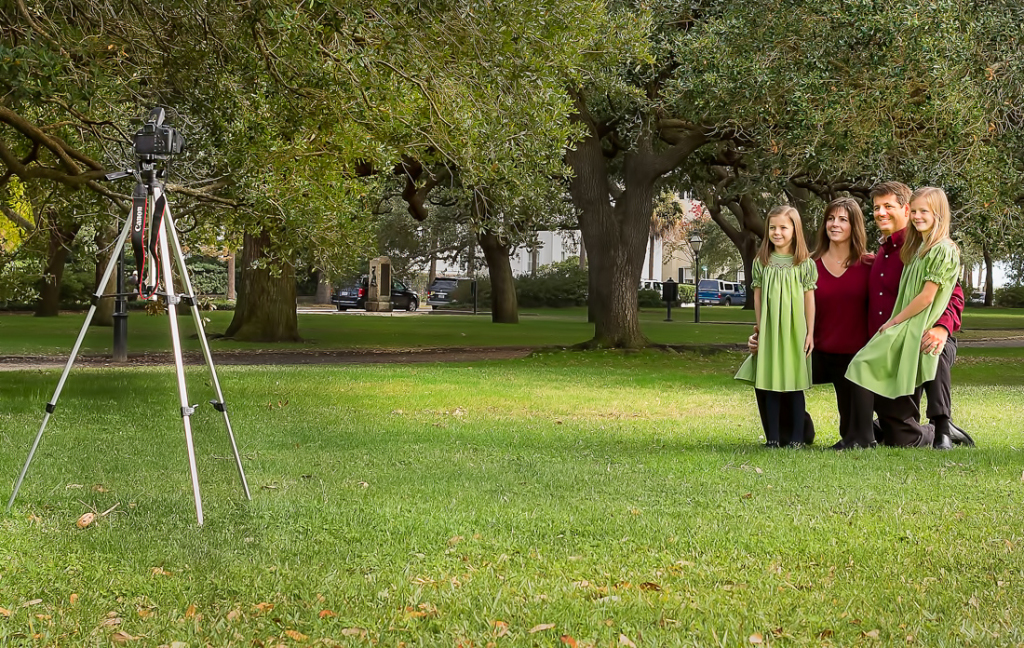Finding Faithfulness of the Heart
by Pringle Franklin
PARIS–Recently at the American Church in Paris, I met Rachel, a woman who absolutely did not believe in divorce. And yet, after 30 years of marriage, Rachel had divorced her husband.
This painful decision troubled her soul as well as her heart. But Rachel found herself in an intolerable situation. She had discovered that for many years, decades even, her husband had been carrying on with another woman behind her back. After the truth came out, Rachel confronted her husband and asked him to work on their marriage. But her husband wanted to keep his wife and his mistress too. He couldn’t see the moral conflict.
Eventually they divorced, and a downcast Rachel began to rebuild her life. She had peace, however, and trusted that God would bind up her wounds. As a believer, Rachel had surrendered to Christ long ago and had been striving to follow him daily. The husband was serving his own desires. Remember, it takes two to make a marriage and only one to break it.
This story illustrates the profound consequences of adultery. By God’s own design, we humans are an unique blend of spiritual and carnal beings; for such creatures, sexual desire is natural. Men and women cannot avoid being attracted to others, even after they are married. It happens, just like anger, or hunger, or fatigue. But Jesus calls us to push away such feelings of desire rather than open our minds to pornography or to entertaining fantasies about specific people we may know.
Now, it’s one thing to notice that your plumber is handsome, fit, and looks good in his black leather jacket. (I’ve experienced this while living in Paris.) It’s another thing to find excuses to get him back over to your apartment so you can hang around him and see what might develop.
The attraction happens naturally. But Jesus calls us to recognize it and shut it down.
Matthew 5:28 New King James Version
28 But I say to you that whoever looks at a woman to lust for her has already committed adultery with her in his heart.
It is not a sin to notice that someone is attractive and to feel drawn to them. It is wrong to roll with it. To quote Christian author and philosopher extraordinaire Dallas Willard:
“These are the people who, when they see a sexually attractive person, do not see the person but see themselves sexually engaging him or her. They see adultery occurring in their imagination. Such a condition is one we can and should avoid. It is a choice.”
Remember, Martin Luther famously said: you can’t stop the birds from flying over your head but you can stop them from building nests in your hair. in his Christian tome The Divine Conspiracy, Willard says:
“For many people, unfortunately, it (lustfulness) has become a chosen habit….The desire is desired, embraced, indulged, elaborated, fantasized. It is the purposeful entertaining and stimulation of desire that Jesus marks as the manifestation of a sexually improper condition of the soul.”
In contrast, marriage, as intended by God, is about abiding faithfulness of the heart. This type of loyalty, once a virtue esteemed for its own merit, is considered outdated by many today.
If you look at any happy marriage that has lasted more than two decades, you will see evidence of the importance of fidelity, forgiveness, and perseverance. How did we, as a society, lose our way from these long-upheld sign posts? Most of us know the slogan popularized in the 1960s: ‘if it feels good, do it’. This bumper-sticker morality is now accepted as a cultural norm in Western countries such as the United States and France. I decided to see where it had come from.
I was shocked to find out.
According to quotemasters.com and Wickipedia, the idea of fais ce que voudras (“do as thou wilt”) started in the early 20th century with some alternative religions and, by the 1960s, had been taken up as a core belief by the Wiccans, or modern-day witches. Now, the Wiccans add: do as thou wilt, so long as it harms none. However, when everything is relative and individuals can write their own moral doctrine based on their personal desires, it is guaranteed that someone is going to be hurt.
 Not to mention that in their quest for hedonism, the hippies punted the condition about not harming others. When it comes to fidelity in marriage, the slogan ‘if it feels right, do it’ flies in the face of thousands of years of Biblical teaching. Look at what Willard says in The Divine Conspiracy about this:
Not to mention that in their quest for hedonism, the hippies punted the condition about not harming others. When it comes to fidelity in marriage, the slogan ‘if it feels right, do it’ flies in the face of thousands of years of Biblical teaching. Look at what Willard says in The Divine Conspiracy about this:
“The rightness of sex is tied to a solemn and public covenant for life between two individuals, and sexual arousal and delight is a response to the gift of a uniquely personal intimacy with the whole person that each partner has conferred in enduring faithfulness upon the other.”
Or, according to C.S. Lewis in The Four Loves:
“The event of falling in love is of such a nature that we are right to reject as intolerable the idea that it should be transitory. In one high bound it has overleaped the massive of our selfhood; it has made appetite itself altruistic, tossed personal happiness aside as a triviality and planted the interests of another in the centre of our being. Spontaneously and without effort we have fulfilled the law (towards one person) by loving our neighbor as ourselves. It is an image, a foretaste, of what we must become to all if Love Himself rules in us without a rival. It is even (well used) a preparation for that.”
Sadly, modern life doesn’t often live up to this ideal. God wants better for us than divorce, but sometimes, due to the hardness of the human heart, divorce is the best you can do with a bad hand. Even when divorce is justified, it still damages all parts of the fractured family.
I have so many friends who are divorced, for a whole host of reasons. And what I have discovered is this: after getting divorced, most people start looking for love again. They are still longing to find that person who will bond with them in the way that God has designed, at the highest level, for a man and woman to grow into one being, in abiding faithfulness, putting the other’s needs and interests on par with — at times even above — their own.
This type of deep and sustainable love is almost too difficult for human nature to maintain. It works best when there is a marriage triangle involving God and the man and his wife. Without God as the third and primary partner, men and women may stay together in a marriage; they may even be faithful. But they will be unable to experience what the Rev. Timothy Keller calls “the deeper mutual happiness that lies on the far side of holiness.”
In his best-selling book, The Meaning of Marriage, Keller states that the power to constantly love your spouse has its source in the love that God is constantly pouring into you.
Yet you have to stop and receive this love from God, otherwise it just washes over you and rolls away, leaving you empty. This means you must carve out time every day to sit with God — and I mean this literally — and contemplate his greatness and his nearness. You need to intentionally orient your day toward your Heavenly Father, spend time in his company, so that you can receive the life-changing gift of knowing you are loved beyond measure. From this place, it becomes much easier to respond with genuine affection and concern to those with whom you live.
This is the secret to improving your part of any human relationship: daily time of prayer and worship. You cannot control what others may do or how they will react, but if you make God your highest priority, you will automatically find yourself treating others with more respect and tenderness.
Even for Jesus, prayer was his daily bread. Likewise we must establish a daily schedule to feast on the love and comfort and protection of God. I know a Buddhist here in Paris who cannot leave her flat without first offering daily sacrifices and reciting prayers to her statues. By honoring this ritual, she hopes to have pleased her buddhas enough that she and her family will be kept safe. As Christians, our prayer life should never be viewed as a chore we need to complete in order to win God’s blessing.
Rather, we should enter into prayer with the expectation that it is a dynamic conversation between a loving Heavenly Father and his child. Let’s look at what Saint Paul says:
1 Corinthians 6:19-20New International Reader’s Version
19 Don’t you know that your bodies are temples of the Holy Spirit? The Spirit is in you, and you have received the Spirit from God. You do not belong to yourselves. 20 Christ has paid the price for you. So use your bodies in a way that honors God.
I challenge you to pick up any fashion magazine or clothing catalogue and find anything that will remotely remind you that the main purpose of your physical body is to house the divine spirit of God. Outside of the church, modern culture misses this fact altogether. Whether or not we acknowledge it, this is reality. Our bodies are perfectly designed to house God’s indwelling spirit.
God wants to fill his temple with his glory; that includes the temple of your body. For this to happen, you have to make yourself available. You must be intentional about spending focused time in the presence of the divine.
I recommend sitting down and spending at least 30 minutes a day alone with God. For me, early morning works best. I schedule my prayer and meditative time before the rest of my household arises.
What does look like? I sit on a cushion on the floor, in the dark, with my back supported by the base of the sofa. Find your own posture. It should be comfortable enough that your body does not distract you. I met an atheist recently who had tried to meditate while kneeling. After about 20 minutes, his legs had fallen asleep and he was in pain. There is no need to punish your body.
On the other hand, remember that if you are lying in a prone position or are leaning against a mound of pillows, your body will receive the signal that it is time to daydream or fall asleep. Your soul needs help from your body to truly commune with your Creator.
Here is a quote straight from the pit of Hell, an excerpt from a letter written by the demon tempter Screwtape to his nephew Wormwood, a junior tempter. In The Screwtape Letters, everything is told from the demons’ point of view, about God (the Enemy) and the men (the patients) that they are attempting to separate from God:
“The best thing, where it is possible, is to keep the patient from the serious intention of praying altogether…At the very least, they can be persuaded that the bodily position makes no difference to their prayers; for they constantly forget, what you must always remember, that they are animals and that whatever their bodies do affects their souls. It is funny how mortals always picture us as putting things into their minds: in reality our best work is done by keeping things out.”
C.S. Lewis, The Screwtape Letters
Prayer is the foundation, yet there are other habits that the diligent Christian will want to cultivate as well:
Reading and memorizing scripture
Worship and fellowship within the church
Listening to praise music at home or in the car — why not rejoice while cleaning the kitchen?
Reading books by classic Christian authors
Occasional fasting to prepare for specific times of prayer
Corporate prayer as part of a regular prayer circle
If you want to learn more, I recommend these books:
Celebration of Discipline by Richard Foster
The Spirit of the Disciplines: Understanding How God Changes Lives by Dallas Willard
Here, discipline is not meant as punishment but as self control, a training of the mind and body to grow in character and grow in spiritual agility. St. Paul compares the Christian life to an athlete, training and striving for the crown. God is willing to help, but you must make whatever serious training efforts that you can.
2 Timothy 1:7 New International Reader’s Version
7 God gave us his Spirit. And the Spirit doesn’t make us weak and fearful. Instead, the Spirit gives us power and love. He helps us control ourselves.
All Christians desire to grow in holiness. We grasp that this pleases God and usually makes our lives better. With God’s help, we can grow into better people, or, actually, into stronger spirits.
Galatians 5:22-23 New International Reader’s Version
22 But the fruit the Holy Spirit produces is love, joy and peace. It is being patient, kind and good. It is being faithful 23 and gentle and having control of oneself. There is no law against things of that kind.
These character qualities don’t happen by osmosis upon salvation; they are the result of personal discipline in the area of prayer, worship, and daily submission to God. As the deer pants for water, your soul thirsts for this experience of the Almighty and his love. You may not even realize how parched your soul has become until you start drinking in the presence of the Lord on a daily basis.
After this, loving others comes more easily. Living happily with a spouse often means making daily sacrifices to make him or her feel appreciated. If we fill ourselves up with the spirit of God’s love for us, then we will have a reservoir from which we can draw. Sometimes spiritual laws can be expressed as mathematical equations. This one reads like this:
time spent with God + a worshipful heart = strength of character and increased virtue
Apply this to your marriage, and you will find a means of loving your spouse on a higher level, apart from the games of manipulation and constant selfish demands that often erode amorous love. This type of unconditional love seeks to serve God by honoring the life partner.
Recently, the reality of this application was brought home to me. A friend here asked why we had moved to Paris, and I explained that I had been reluctant to move, but it had been my husband’s dream for us to live in Europe for a few years. To this, the man burst into laughter and said snidely, “And I can guess that he’ll be paying for that for quite some time.”
I wasn’t expecting that line of thought. “No,” I said, “no, it wasn’t like that. When I talked about the possible move with my spiritual mentor in Charleston, she had said: ‘Do you want to be the kind of wife who squelches your husband’s dream?”
“No, I don’t,” I told her.
“Then you say yes to your husband, and ask God to shut the door if it is not his will,’ ” she advised.
That is exactly what I did, trusting it to a higher power, the power of love beyond earthly bounds, beyond time, and certainly beyond my human frailties and limitations. If we allow more of this love into our daily lives, we will receive abundant help in restoring and enjoying our relationships.
Pringle Franklin is the author of Hope and Healing in Marriage, True Stories of Renewed Love, available at Amazon.com, Amazon.fr, and Amazon.co.uk.









1 Comment
Very well done. Thank you for such insight and guidance. Inspirational!